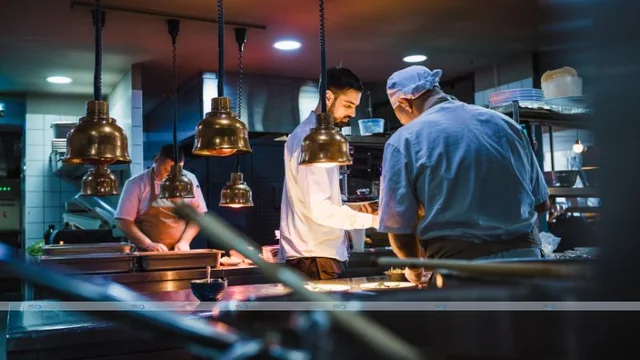5 Logistical Issues to Overcome Before You Start in the Restaurant Industry

Venturing into the restaurant industry is an exciting journey, filled with the promise of culinary delights and satisfied customers. However, before you dive into this bustling world, it's crucial to navigate through a series of logistical challenges that can make or break your restaurant's success. Addressing these issues upfront ensures a smoother path towards establishing a thriving eatery. In this article, we'll explore five key logistical hurdles that every aspiring restaurateur must overcome before opening their doors to the public.
Location and Accessibility
The first and perhaps most critical logistical issue is choosing the right location for your restaurant. Location is more than just a physical space; it's the lifeblood of your establishment's visibility and accessibility. The ideal location should be easily accessible to your target demographic, whether it's in a bustling city center, a cozy suburban street, or a popular tourist area.
Consider factors like foot traffic, parking availability, and proximity to other businesses or attractions. Your location should not only resonate with the type of cuisine you offer but also provide a convenient and inviting atmosphere for your customers. Remember, a great location can significantly boost your restaurant's chances of success by enhancing visibility and attracting a steady stream of patrons.
Sustainable Waste and Grease Disposal
Efficient waste and grease disposal management is not only essential for compliance but also for demonstrating your restaurant's commitment to sustainability. Consider implementing eco-friendly practices to minimize your environmental impact while addressing waste-related logistical challenges:
Set up recycling and composting programs in your restaurant to reduce the volume of waste that goes to landfills. Encourage both staff and customers to participate in these initiatives by providing clearly marked bins for recycling and compostable materials.
Explore options for recycling kitchen grease into biodiesel or other sustainable products. Partner with a licensed grease recycling service to ensure that used cooking oil is disposed of responsibly and reused when possible.
Work with suppliers to minimize excessive packaging. Choose eco-friendly packaging materials that can be recycled or composted, reducing the amount of waste generated in your restaurant.
Regulatory Compliance and Permits
Navigating the complex web of regulations and permits in the restaurant industry is a logistical challenge that cannot be ignored. Before you can welcome diners, you must obtain the necessary licenses and permits, which vary depending on your location and the type of establishment you plan to operate. These permits often include health permits, food service licenses, alcohol permits, zoning clearances, and more.
To ensure a smooth start, research the specific requirements in your area and create a checklist to track the application process. Keep in mind that obtaining permits can be time-consuming, and delays may occur. It's crucial to plan ahead and allocate sufficient time and resources to secure all the necessary paperwork. Failure to comply with regulations can result in fines, closure, or legal issues that can be detrimental to your restaurant's success. Therefore, diligent attention to regulatory compliance is non-negotiable in the restaurant industry.
Staffing and Training
In the restaurant industry, the success of your establishment hinges on the competence and dedication of your staff. Proper staffing and training are key to delivering exceptional service and maintaining a positive reputation.
Start by hiring the right team. Recruitment is a meticulous process. You need to hire staff members who not only possess the necessary skills but also align with your restaurant's culture and values. From chefs and servers to bartenders and kitchen staff, each role plays a crucial part in the overall dining experience.
Once you've assembled your team, invest in comprehensive training and ongoing development. Provide training in food safety, customer service, and any specialized skills required for your cuisine. Regular training sessions keep your staff updated and motivated, ensuring consistent excellence.
High turnover rates can disrupt your restaurant's operations and increase costs. To retain skilled employees, offer competitive wages, benefits, and opportunities for advancement. A happy and engaged staff is more likely to deliver top-notch service, leading to satisfied customers and repeat business.
Supply Chain and Inventory Management
Effective supply chain and inventory management are vital for the smooth operation of a restaurant. From sourcing fresh ingredients to maintaining an ample stock of non-perishables, a well-organized supply chain is the backbone of your culinary endeavors.
Whether sourcing ingredients or managing your commercial kitchen equipment, having a robust supply chain ensures everything runs seamlessly behind the scenes.
Identifying reliable suppliers who provide high-quality ingredients is paramount. Establish relationships with local farmers, distributors, and wholesalers to ensure a steady and fresh supply of produce, meats, and other essentials.Implement robust inventory tracking systems using a business management software to monitor stock levels, minimize wastage, and prevent shortages. This includes perishable items like vegetables and dairy, as well as non-perishables such as cutlery, glassware, and cooking utensils.